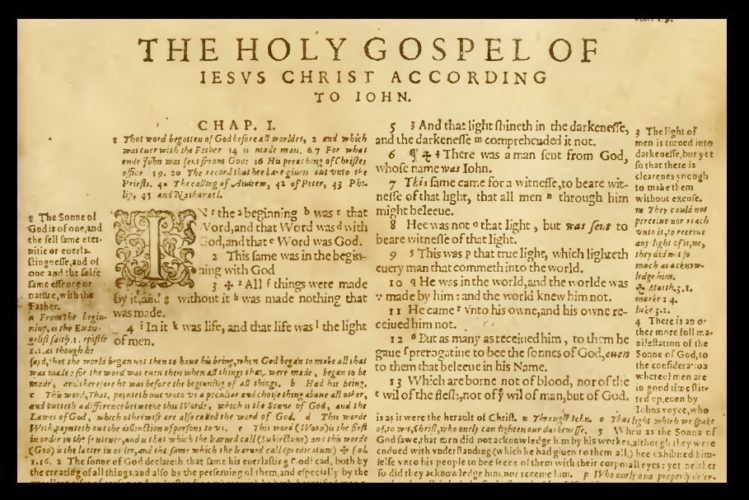
Membership in the church sometimes includes disheartening experiences. In the following is recounted my experience as the member of a church which had a time of conflict about its senior minister. Congregations since the earliest days of church history have had to deal with conflict and divisive doctrine, people following personalities, and other problems. A considerable portion of the New Testament addresses problems in churches such as those seen in Galatia and Corinth.
The church in question had a membership of about a thousand. The pastor was known for his preaching, so when he left for another call the pulpit committee had difficulty finding a candidate to meet its requirements. Once a prospective pastor was located, he preached in the church and the congregation was given opportunity to interview him. This was particularly important because he was coming from the denomination from which the church in question had separated over the inspiration of Scripture and other doctrinal issues. He was examined thoroughly, as he should have been, but some questioners were less than temperate and took on an accusative tone. I overheard one person say as the congregation exited the church following the meeting, “They were just terrible to that poor man.” Regardless of—or possibly because of—the tenor of the question and answer session, the candidate accepted the call and was installed. It was not long before division arose regarding him because attendance dropped. Concern over the empty pews led some elders to try and remove the pastor, but he conformed to the church standards he subscribed to and he could not be charged with error. The problem, as seen by some, was his pulpit presence and homiletic skills. It is not surprising that a session and congregation would anticipate a new minister having similar preaching ability as its previous minister, but it is disconcerting that once his capabilities were recognized some individuals made his life miserable. While I was speaking with one person about the situation it was said, “the sheep are just not being fed.” My perspective was that we were being taught the word of truth and were challenged to be better Christians; the food was coming forth. Maybe the sheep were not being fed with the finesse of the previous minister, but the flock was being taught the truth. As one might expect, unfortunately, things went from bad to worse as some pressed hard for him to resign, but he was a man of character who was concerned for the spiritual issues behind the attitude of those seeking his departure. After a few years, he decided to take another call. When his resignation was announced, it was decided to have a special service of appreciation followed by a reception. He was given money, a car, and other gifts. Some reconciliation had been accomplished before his departure and hopefully, as the years passed, the minister and those who opposed him made peace. It was not a high point in the congregation’s history.
I mentioned that a service of appreciation was held for the minister. The associate pastor had an opportunity to speak and described his colleague as “an Israelite indeed, in whom is no guile!” (John 1:47). The word “guile” is not used often today. It was the translation chosen by the King James Version interpreters and other scholars vernacularizing the original texts. Several of the modern versions including the ESV use the word deceit rather than guile. Regardless of whether the early modern or twenty-first century word is used, Nathanael was a man of straightforwardness and honesty. What you saw was what you got, and what you got was a guileless man. Taking a side road for a bit, an alternative interpretation is that Jesus was making a tongue-in-cheek comment. That is, Nathanael’s stereotyping observation about Nazareth was in fact insensitive and full of guile, so when Jesus called Nathanael guileless, he was being sarcastic. I prefer the former rather than the latter. The intention behind Nathanael’s comment honestly expressed curiosity concerning the possibility that something good could come out of Nazareth. The goodness of the Nazarene exceeded Nathanael’s expectations because he said during the dialog with Jesus, “Rabbi, Thou art the Son of God; Thou art the King of Israel.” So lets return to the beleaguered minister in question. His associate minister would have had considerable contact with his senior colleague. They would know each other pretty well and would cooperate in several aspects of church ministry. The associate’s comment showed a high level of respect and appreciation for his co-laborer in ministry.
The most important qualification for a minister’s teaching and preaching is that the Truth is presented. Prophets of the Old Testament were tested by whether their words came to pass; prophets of the New Testament are tested by their faithfulness to what has already come to pass and will come to pass in the future according to God’s Word. No one wants to listen to a dull, lifeless, wordy, and irrelevant minister preach week in and week out, but in my opinion, any minister that is that poor in the pulpit needs to reconsider his call to the ministry. Included with a call from God is a certain acceptable level of competence in the pulpit, an ability to speak. The minister in question in this post was competent, congenial, and capable, but most importantly, he taught the truth. When a church calls a minster it is like marriage in that he is taken for better or for worse. Calls should not be rushed into anymore than marriages should be. Just as potential husbands and wives should assess each other, likewise churches and candidates. As things unfold with a new minister’s work, the weaknesses need to be balanced by an appreciation for his strengths. Pastors need encouraging, so if a weakness is becoming an albatross around a pastor’s neck—the elders and congregation need to help him out. I should mention here that the minister in question was encouraged by some in the church to have help with his preaching skills, which he did. Christians should be seeking those who preach the truth of Scripture, and if the one who is preaching is an exceptionable speaker—it is good, but eloquence and presence can sometimes mask a false teacher.
BARRY WAUGH





